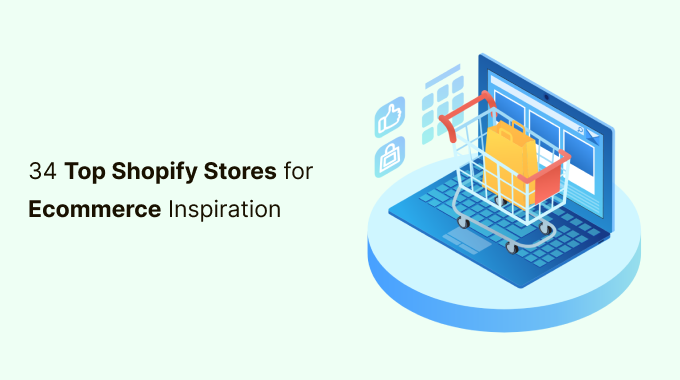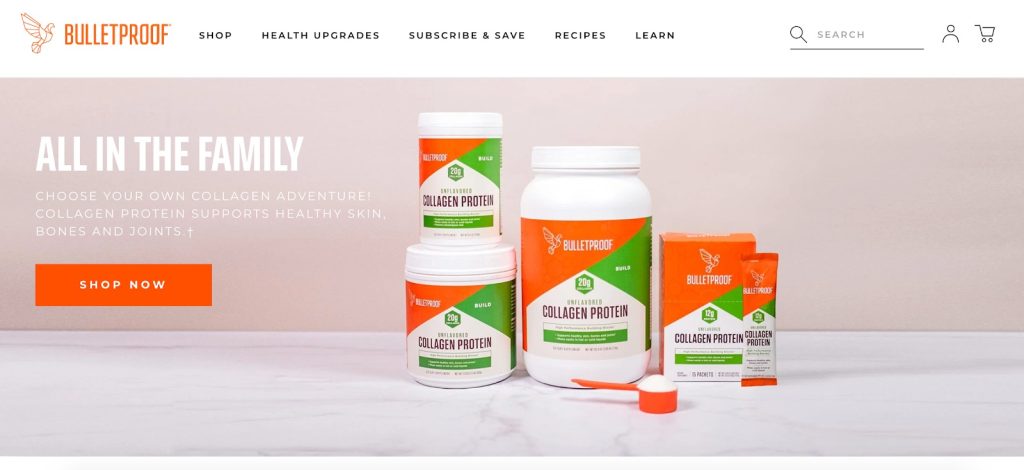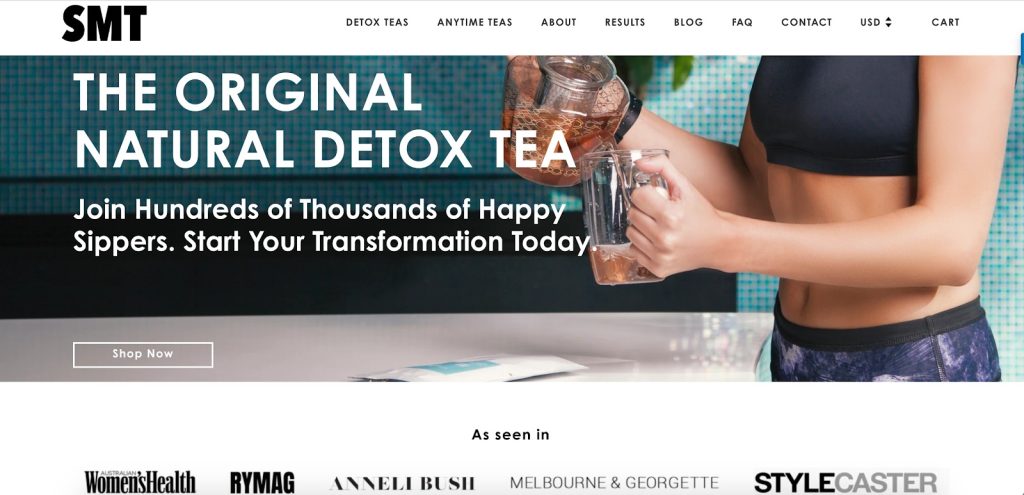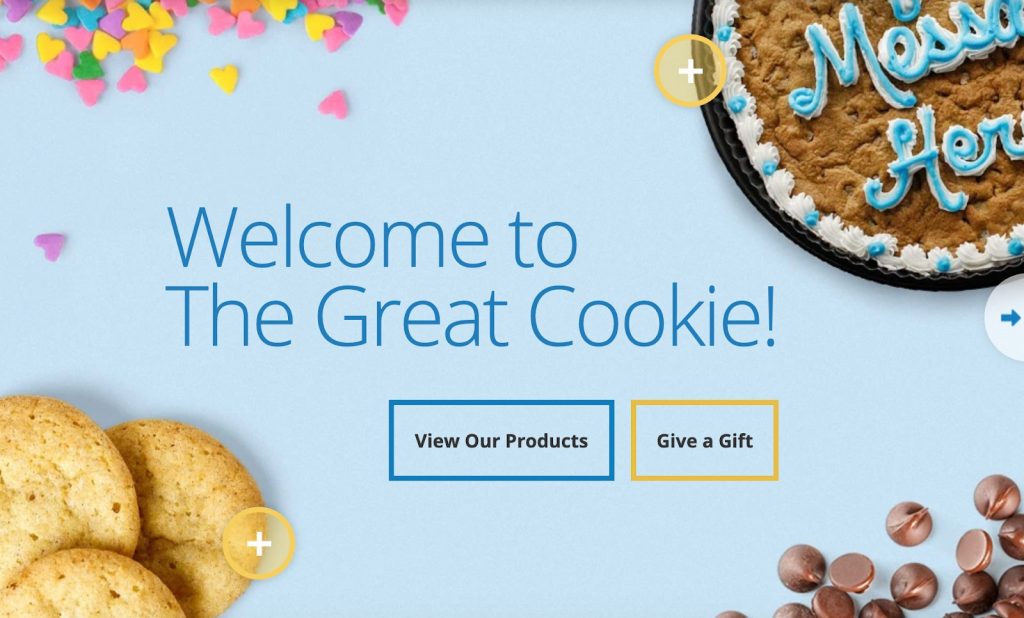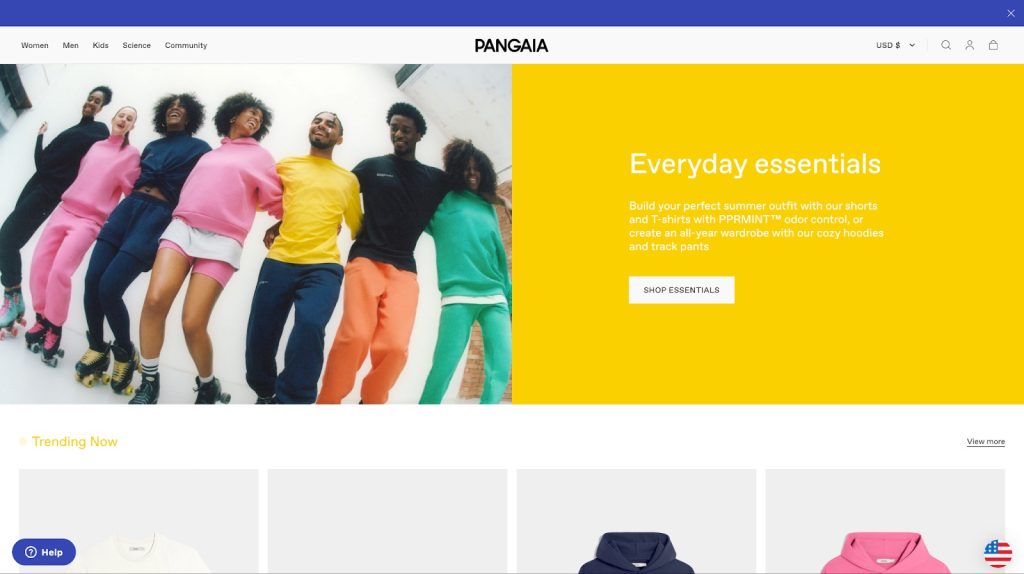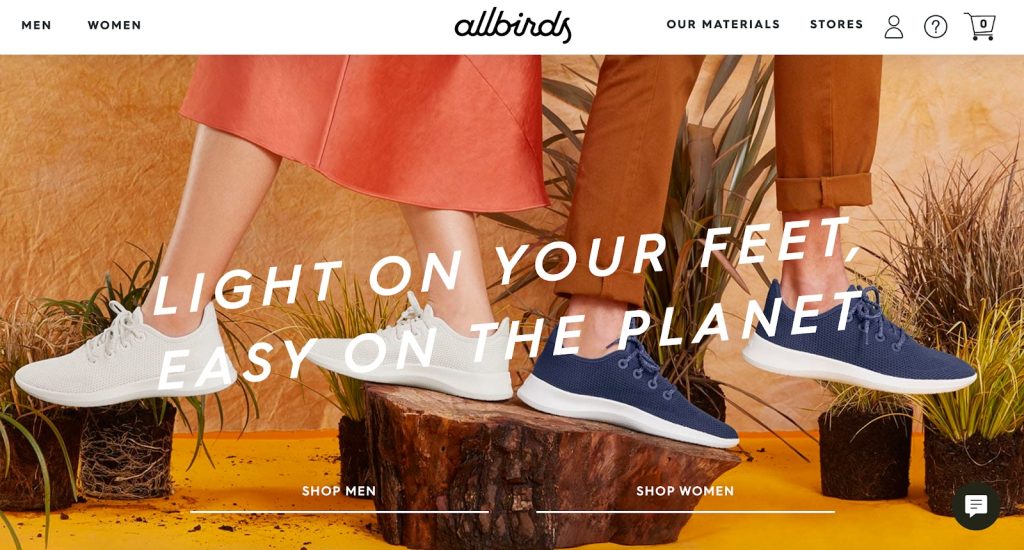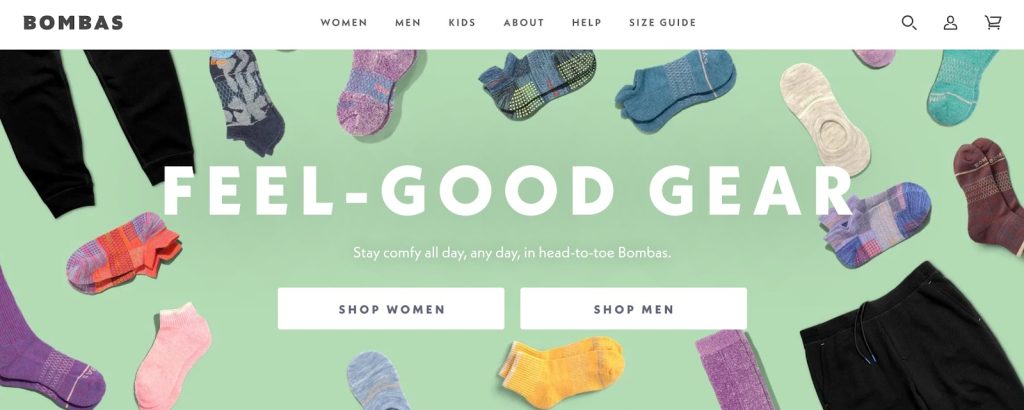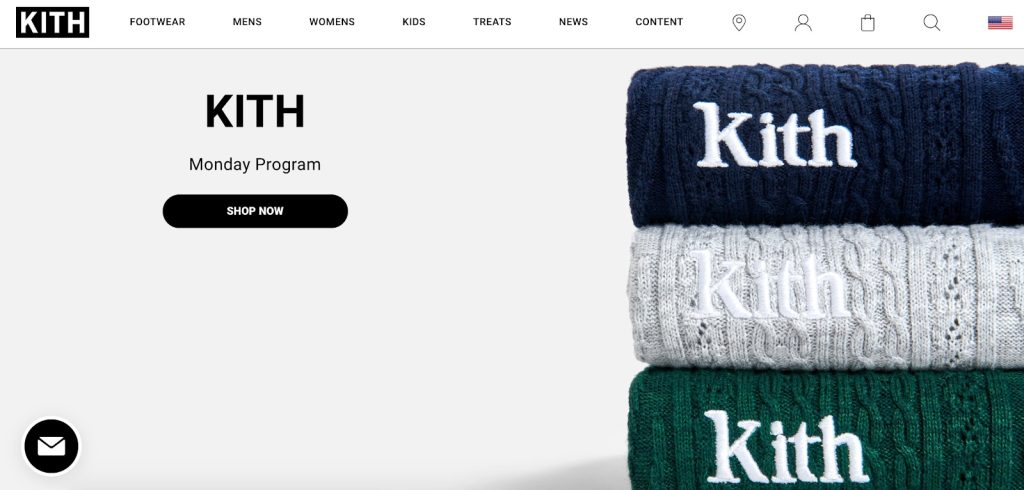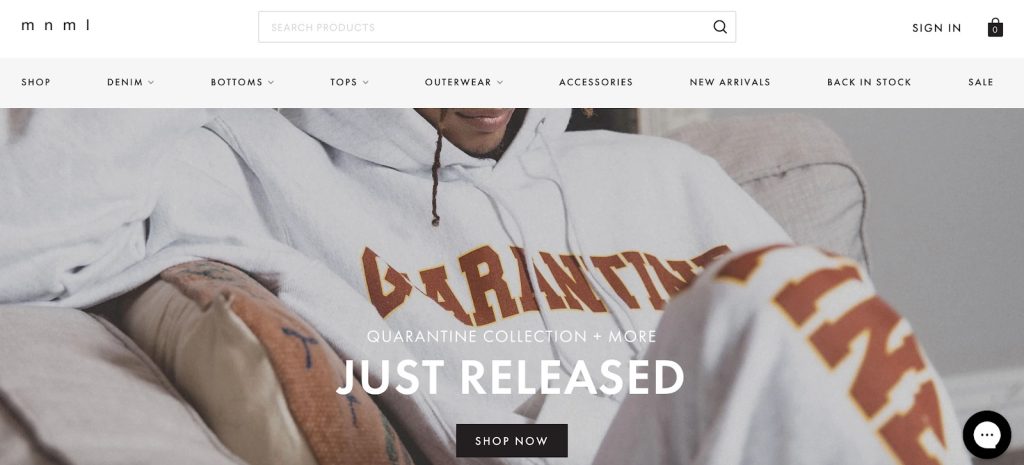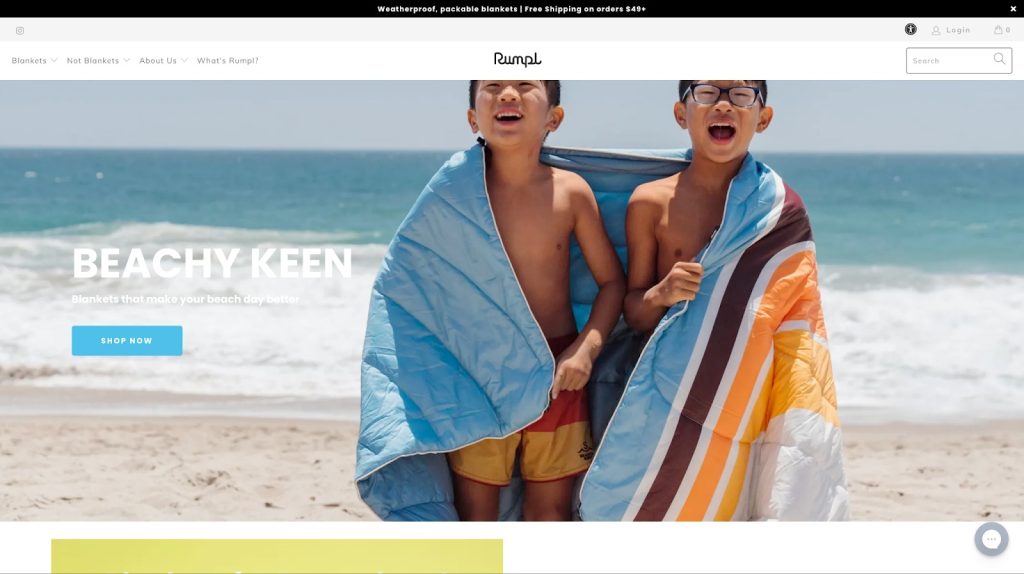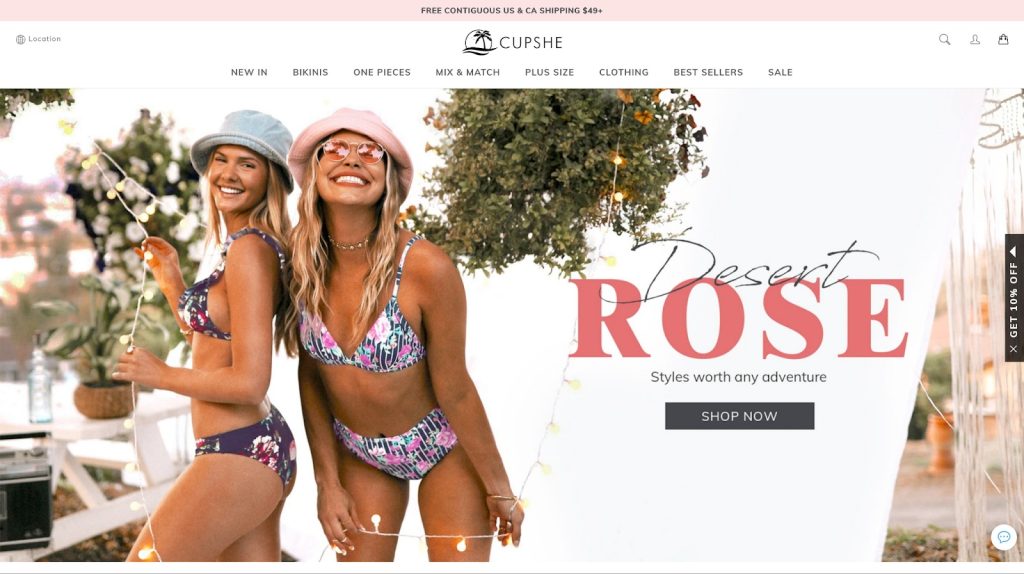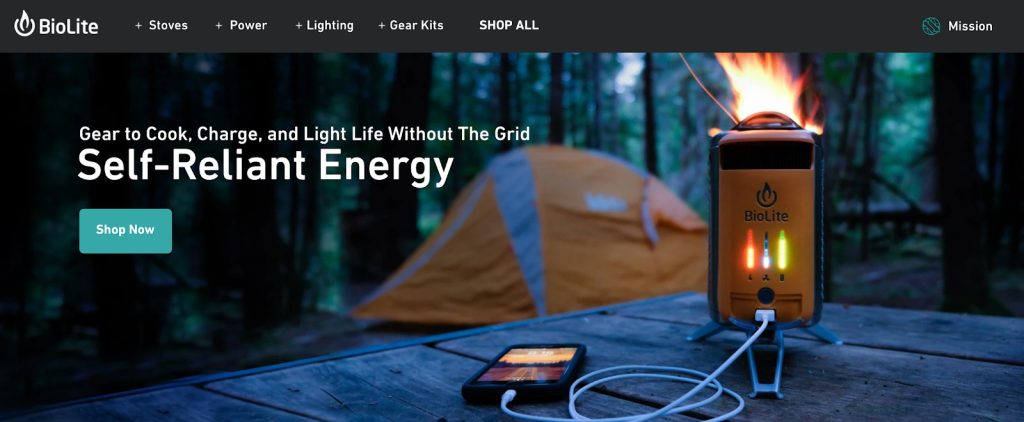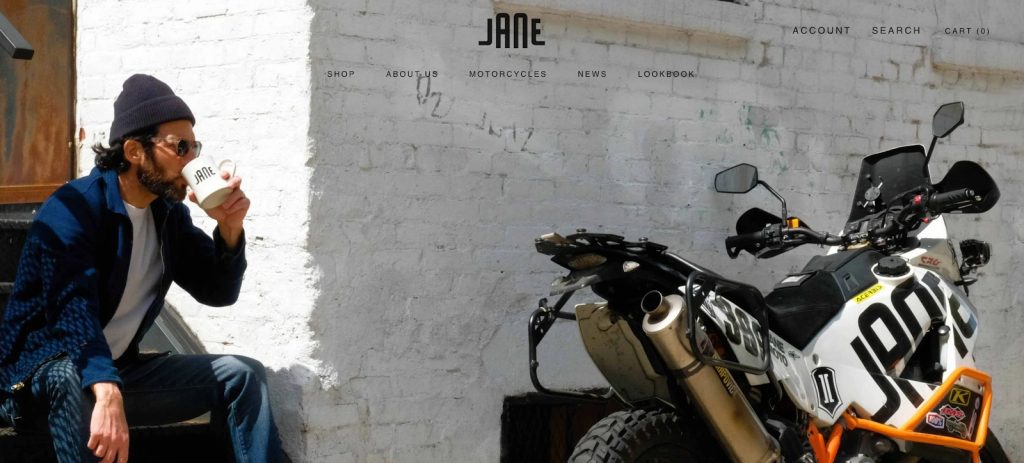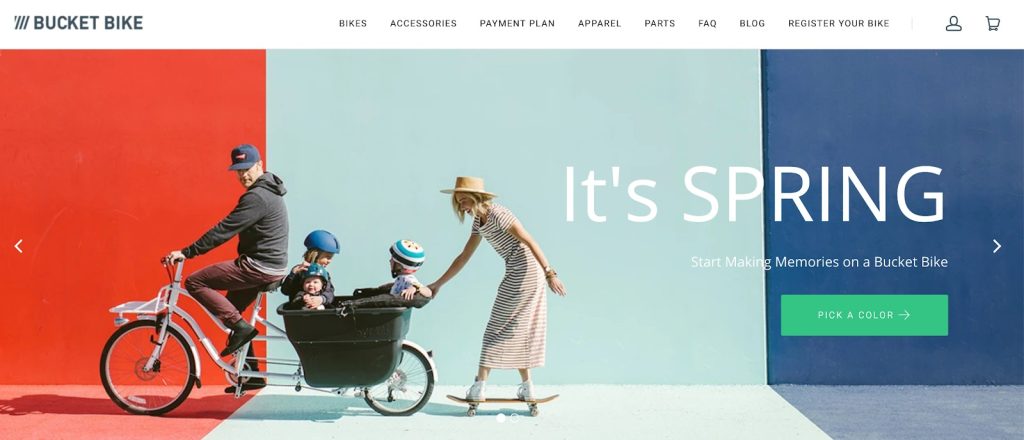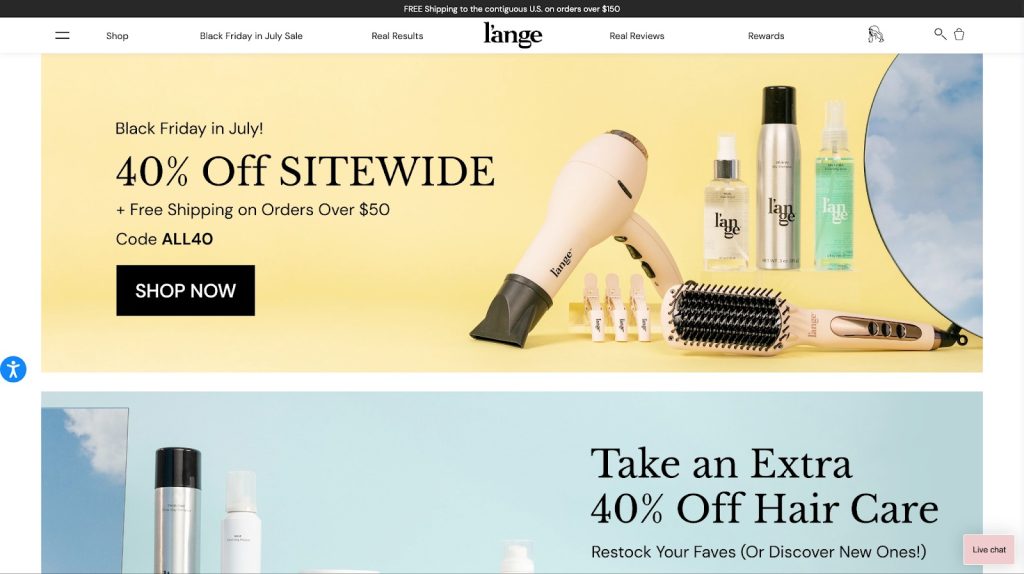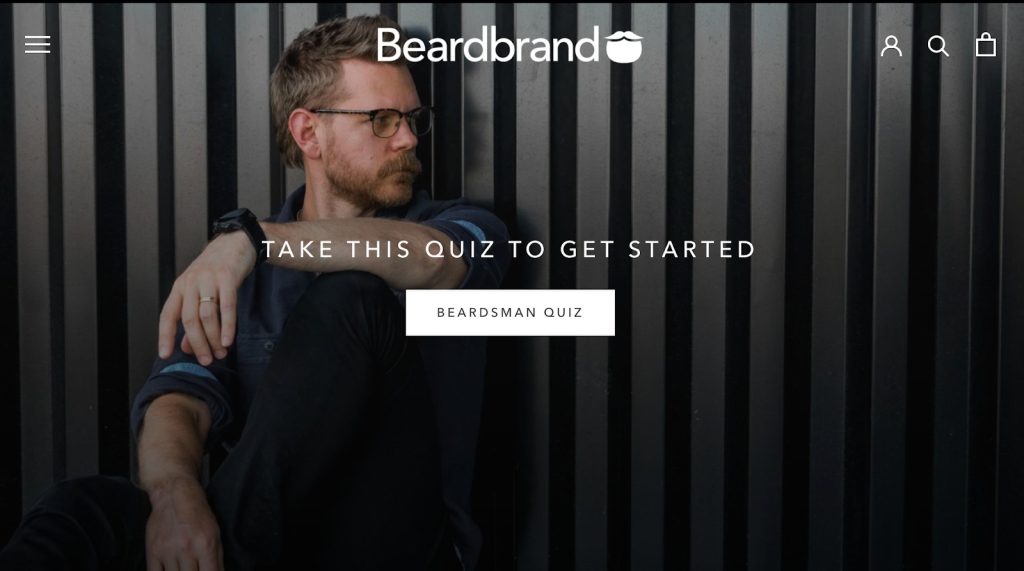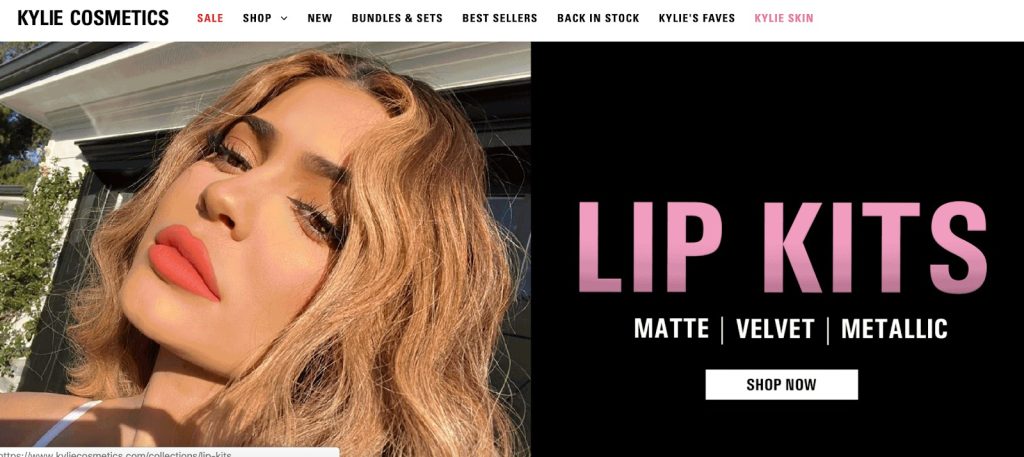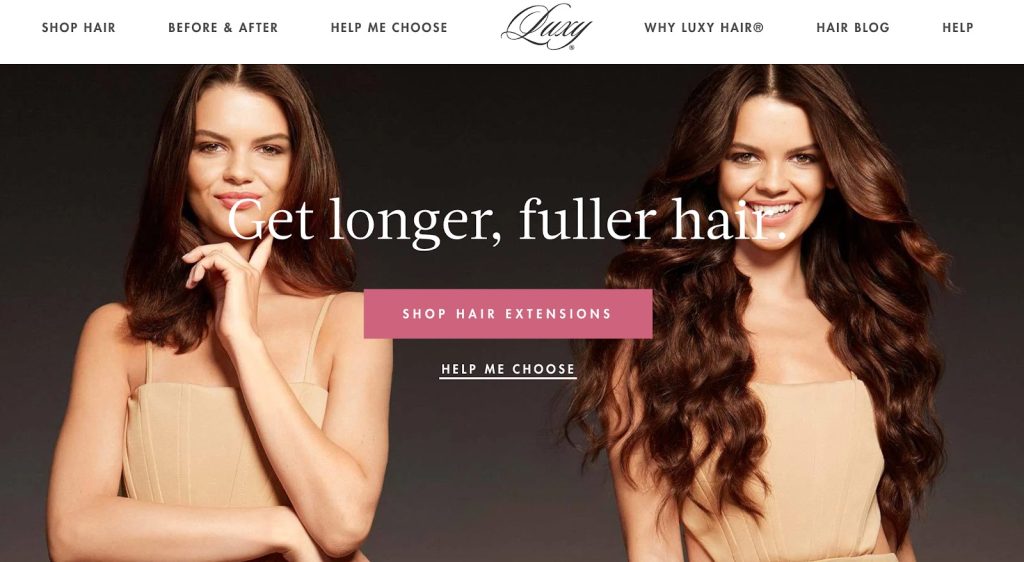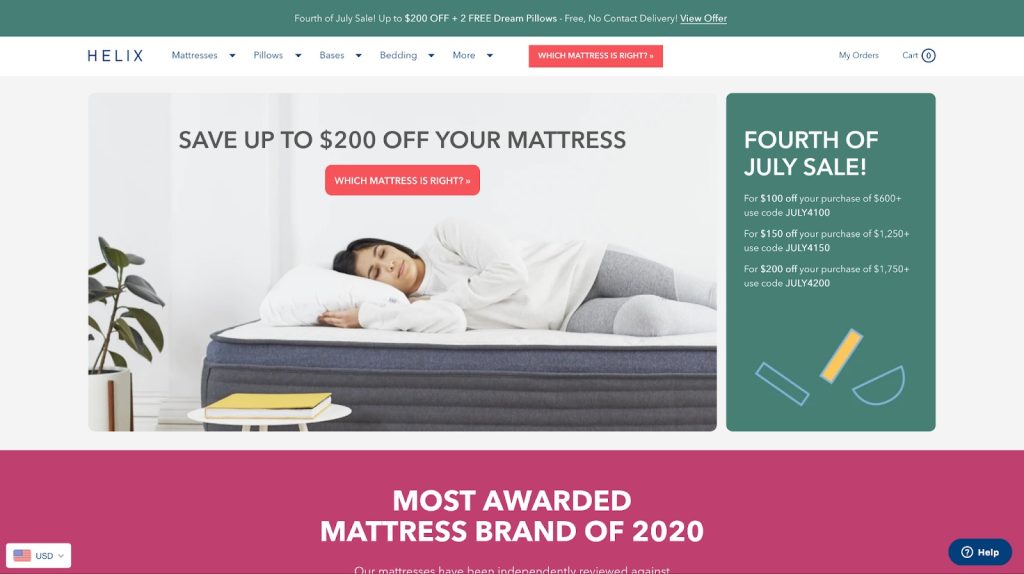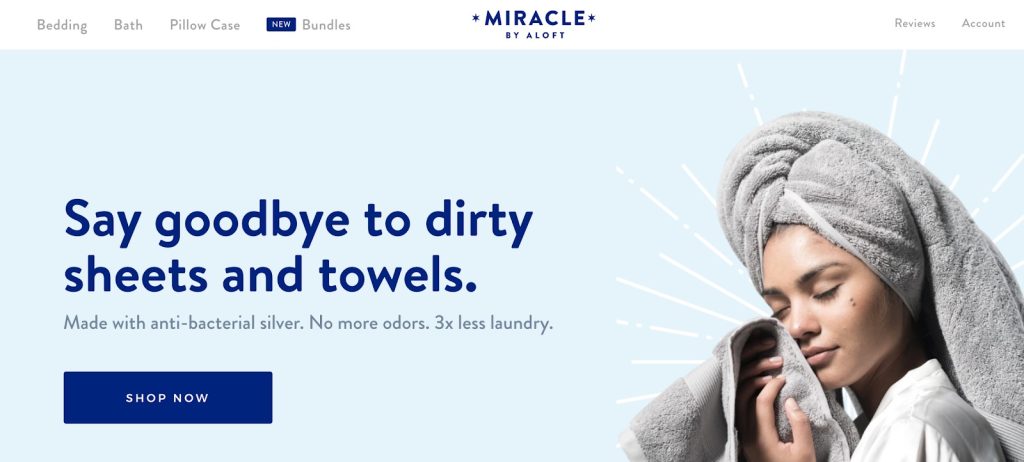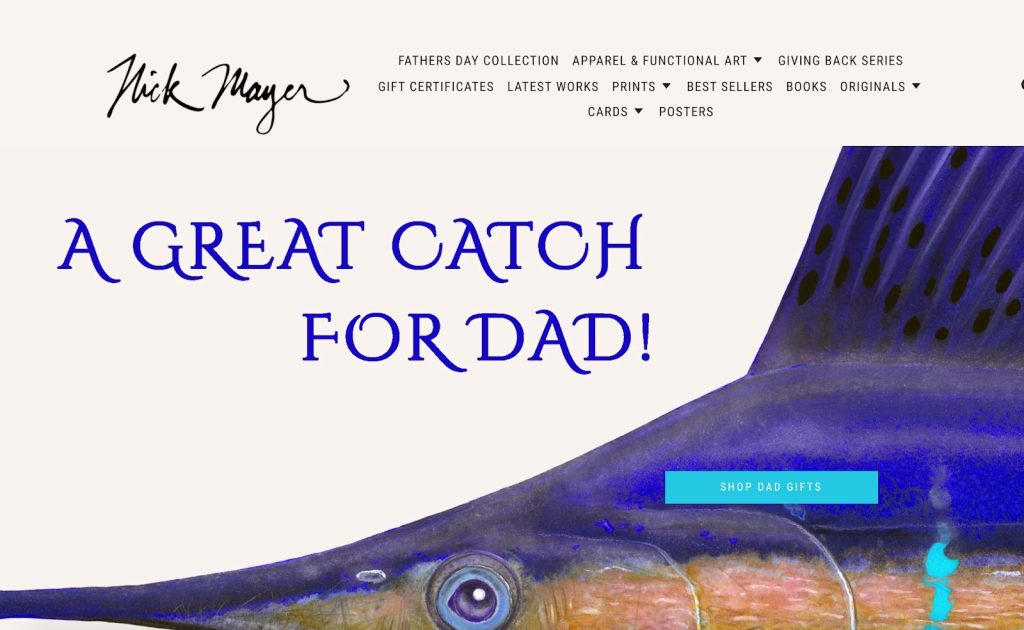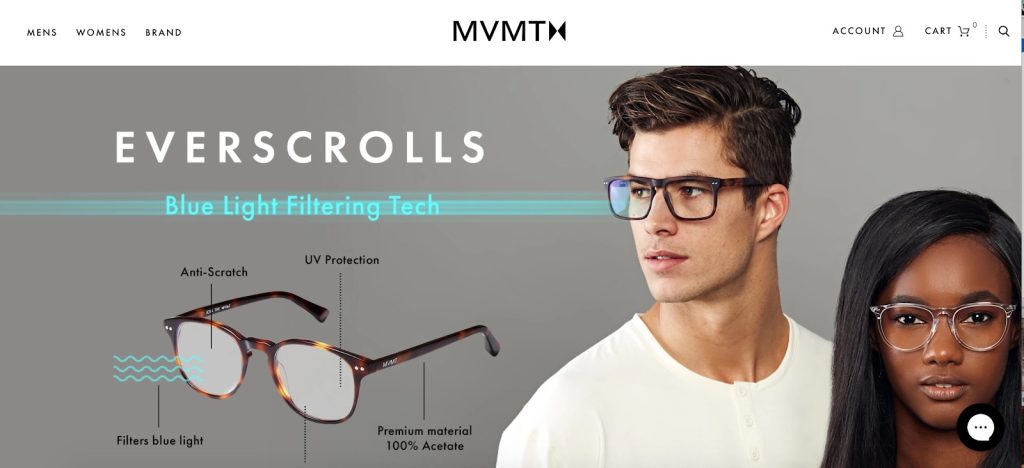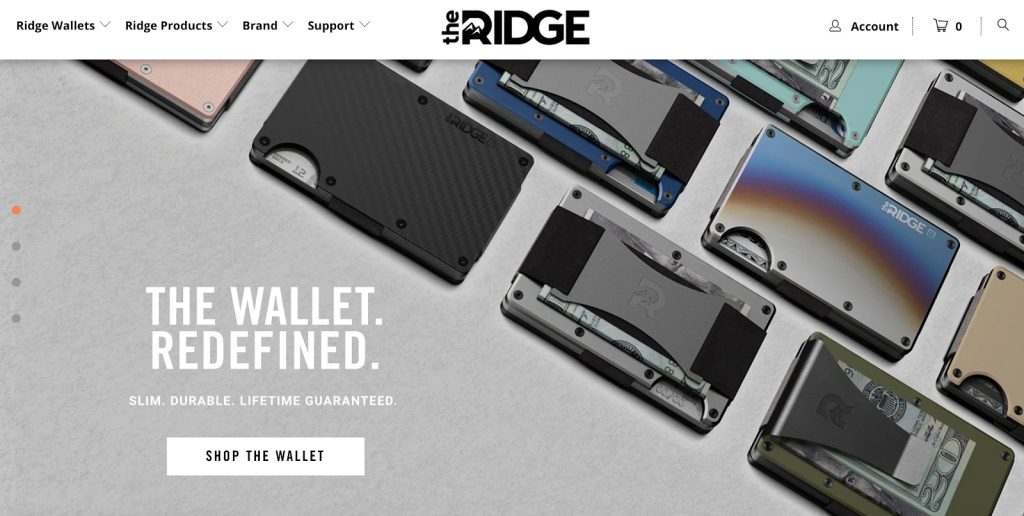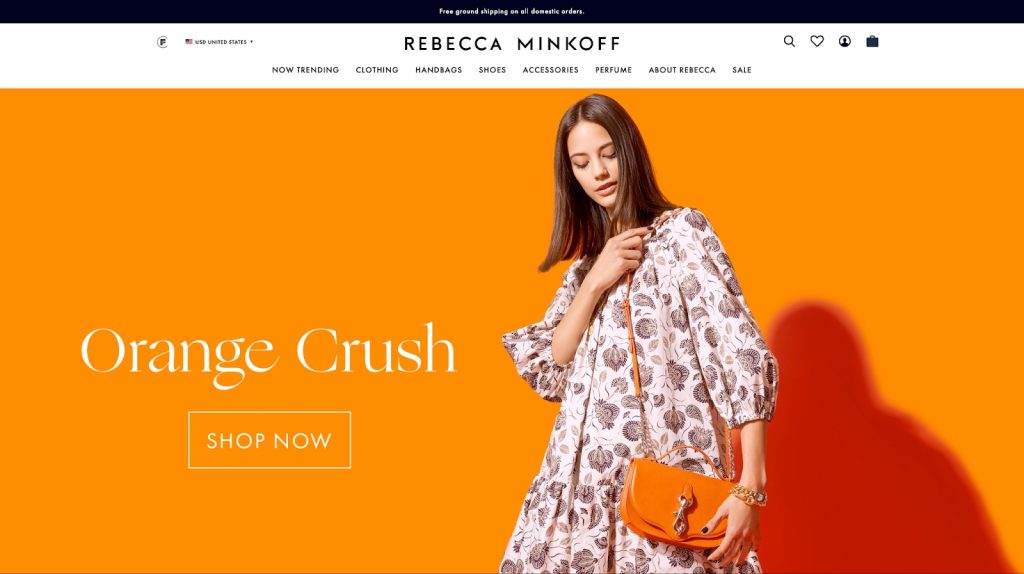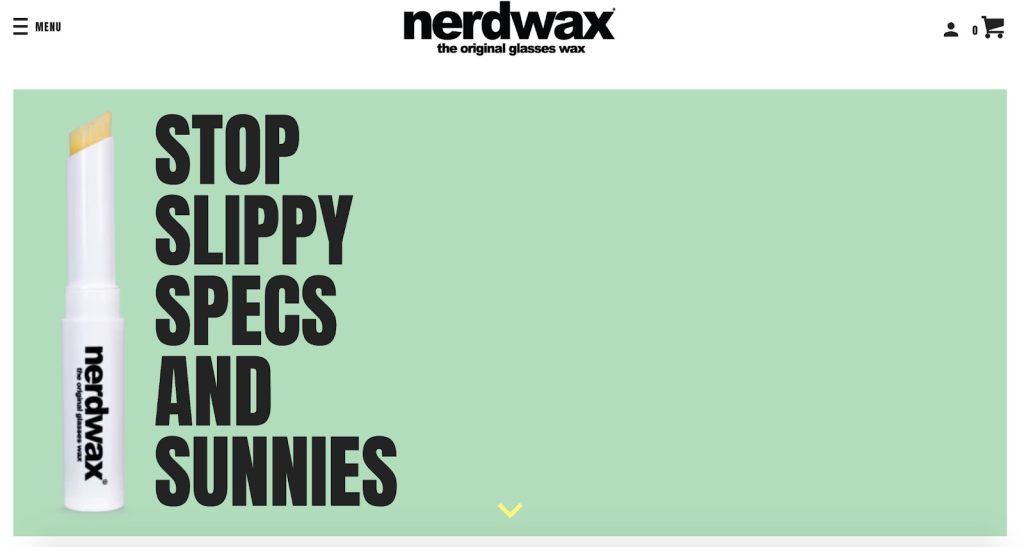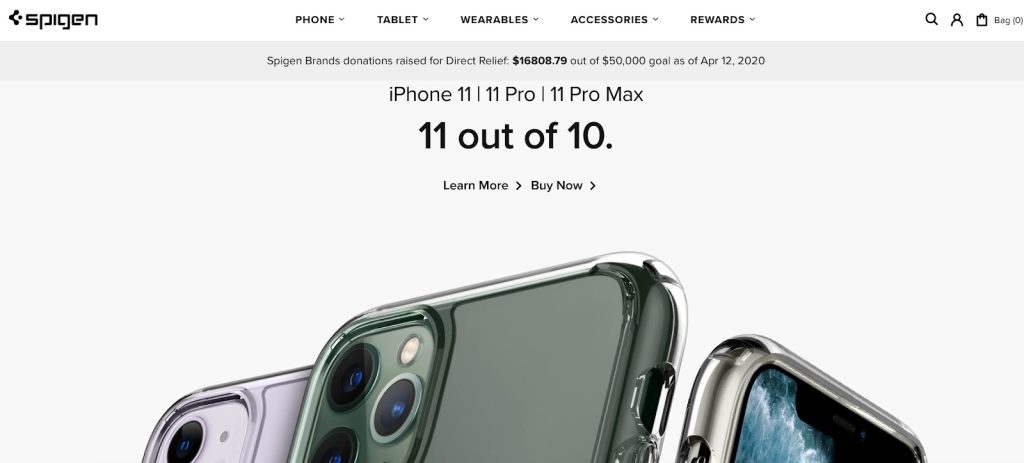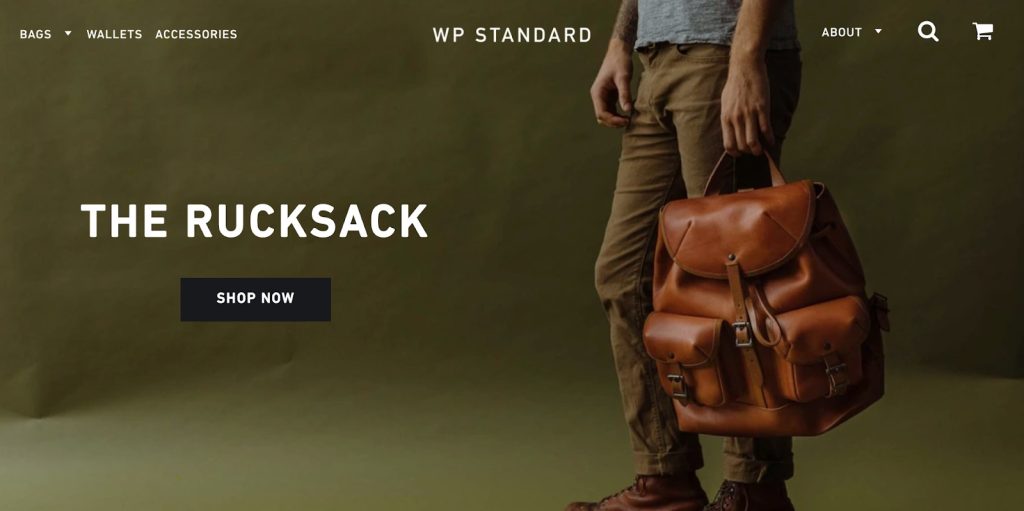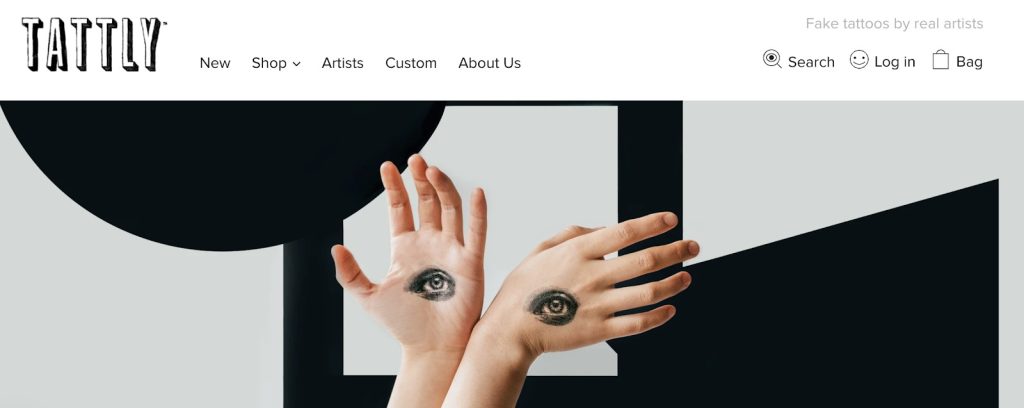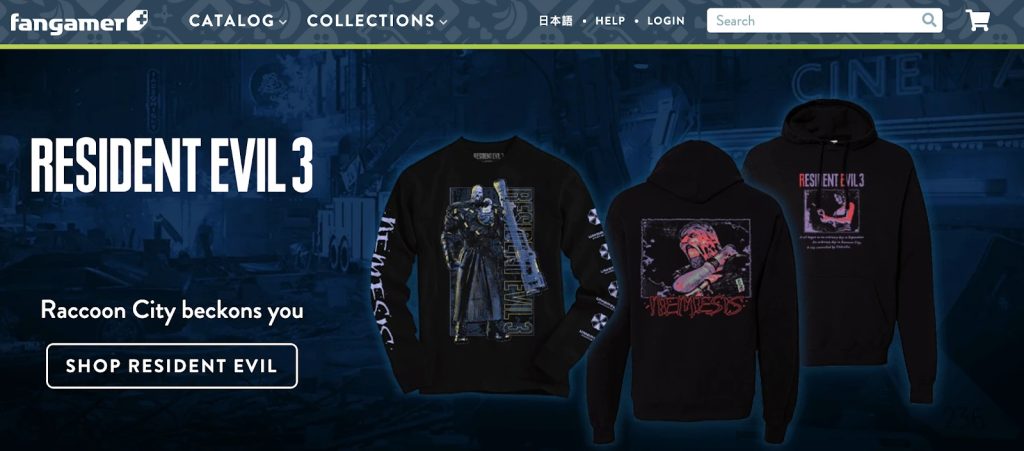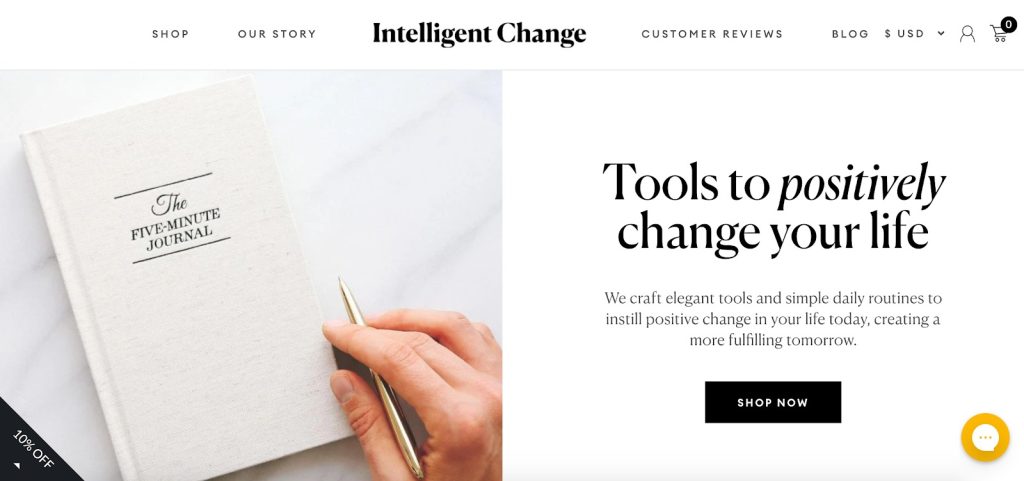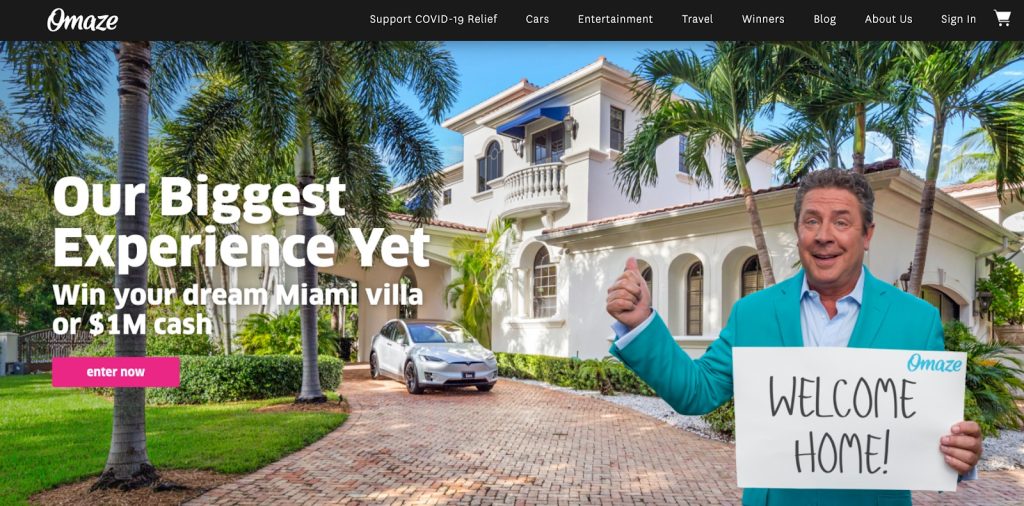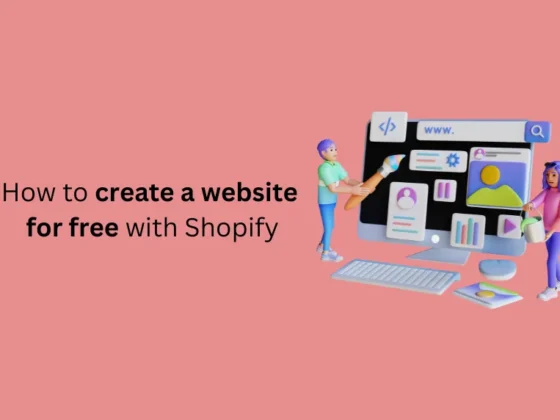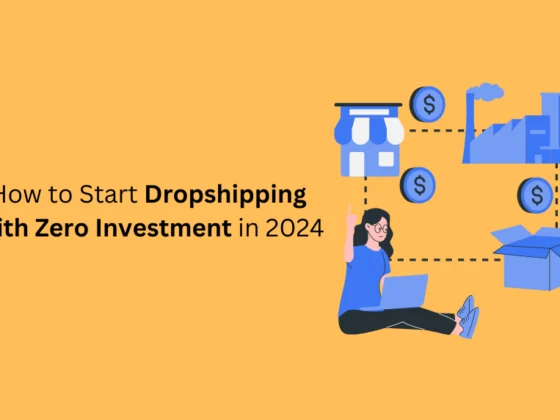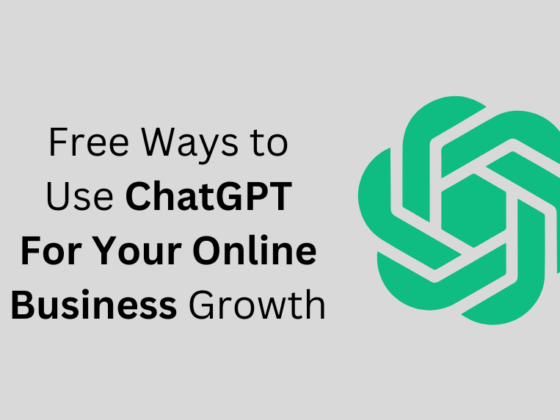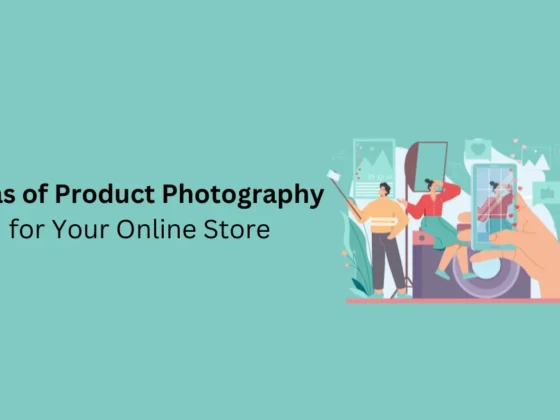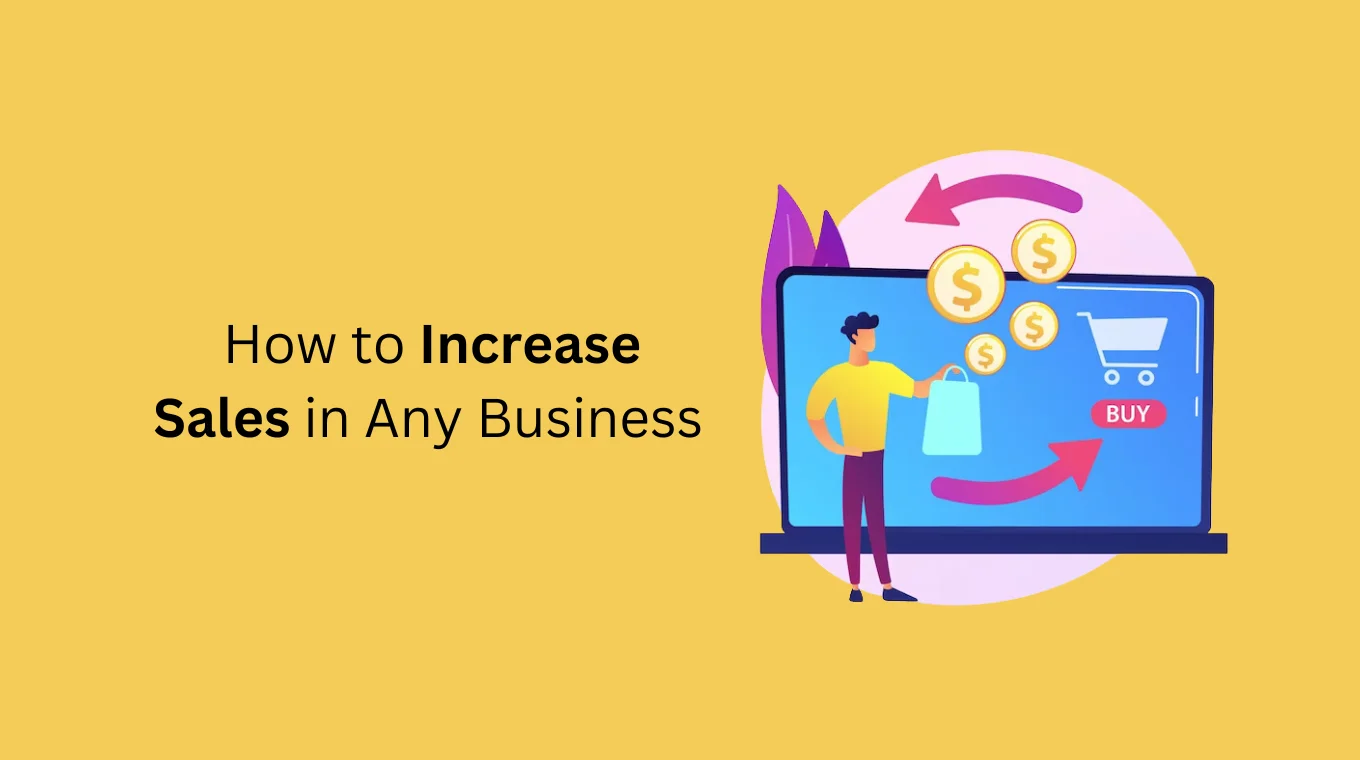Need some inspiration to elevate your site from standard to superb? Of course, you do.
There are so many Shopify stores out there, selling all manner of things. Some stores do very well, while other stores fail. Best to aim to be the former. But, how do you do that?
There are many reasons for success or failure in eCommerce. Shopify gives businesses a great foundation to get their store on the right track, but it’s up to the store owner to make it a success.
Your path to increased sales and customers that just keep coming back is bound to differ from that of someone selling a different product. So, it’s good to see many different success stories and how they’ve made their business thrive.
In this post, we’ll go cover:
- What makes a Shopify store successful
- Why Shopify stores fail
- The biggest brands on Shopify
- The 34 Top Shopify Stores and how they did it
Given that there are so many reasons that a particular store will be successful, what works for one may not work for another. No two stores are alike.
These highly successful stores should serve as an inspiration, not a color-by-numbers template.
Nevertheless, to get your sales figures up into the seven digits and beyond, it certainly helps to analyze the stores that have already achieved that level of success.
So, let’s start by breaking down the elements of a successful Shopify store.
A Shopify store is equipped to look pretty good right out of the box. This means that it’s simple to put up a beautiful storefront and you are competing with similarly lovely-looking stores.
So, the bar for what sets you apart from the competition has been raised (assuming they also have a Shopify store).
What makes a Shopify store great isn’t just one thing. It is multifaceted and depends on your particular customer base. One thing is for sure: you need to be more visible and enticing than your competitors.
While your target market may be unique to your vertical, there are many site improvements that any customer will appreciate.
- A unique and striking storefront. The fact is that ugly sites don’t inspire people to stick around. Many brands have moved toward minimal and modern design aesthetics, moving beyond the standard Shopify themes available and utilizing a powerful page builder for a totally customized storefront.
- Stunning photography. Really great stores have incredible imagery to go along with that freshly designed site experience. You want to represent your amazing products in the most flattering (and descriptive) way from a shopper’s first visit to the site all the way to when they click that buy button.
- Responsive shopping experience. Shopping happens wherever people are, whether on their laptops at home or out and about with their mobile devices. If your site isn’t optimized for the mobile experience, you are losing out on sales.
- Quick loading of pages. Humans are impatient creatures. If a page doesn’t load fast enough, we’ll just go elsewhere. In fact, conversion rates drop 4.42% each second in the first five seconds of loading. So, the faster your site loads, the better your conversion rate will be.
- A significant influx of traffic. You can’t expect conversions if you don’t have enough traffic to convert. Through a great SEO strategy and a strong social media presence, you can start to drive all that amazing traffic to your store.
- Powerful integrations. A store on its own can go a long way but integrations can bring it over the line with additional functionality that makes the customer experience better and the store owner’s experience easier. Shopify apps can help you manage your email marketing, implement customer loyalty programs, utilize social proof, help with customer support, and so much more.
- Free shipping! The power of this offer is undeniable. Even if the final cost ends up being the same (or more), shoppers do not want to pay for shipping. A whopping 73% of consumers said that free shipping greatly impacts their decision to buy.
- Descriptive product pages. You have to understand what your online store is replacing—the in-person shopping experience. In the store, shoppers can pick up a product, look at it from all sides, and get a feel for texture. You have to do that with only photos, videos, and detailed descriptions. If they fully understand what they are buying, they are less likely to return it. So, be descriptive!
Why do Shopify stores fail?
Just as there are many reasons why a store may succeed, there are loads of reasons why it may fail. Some of these reasons are the flip side of what makes a store great.
Some reasons a Shopify store may fail are:
- No traffic. As discussed above, you can’t convert what you don’t have.
- An uninspiring storefront. Shoppers tend to vacate a poorly designed shop with grainy photos and difficult navigation. Investment in a great-looking store is vital.
- Pricing. Obviously one of the biggest considerations for shoppers, pricing products too high or too low can take a toll on your sales. There are many pricing strategies that can get you on the right track.
- Shipping issues. Another ever-present consideration for shoppers is shipping. If your shipping is too costly or your shipper is terrible, your customers won’t stick around.
- Unreliable product. The cornerstone of any store is its product, so if the product isn’t up to snuff, the store will inevitably fail. Make sure the product you sell is of the highest quality and your customers will pay you back with their continued patronage.
- Your niche is too small. If there aren’t enough people to sell to, you can’t sell enough to stay open. When considering your niche, make certain that the market is sufficiently large enough to keep you in business.
- Your target market is too large. On the other hand, if you go too big and try to sell to everyone, you may find yourself struggling to market to anyone.
- Too much competition. Finally, if you start selling a product that is already being sold by many others without a clear differentiation, you may not ever be able to break into the market.
- Lack of customer support. Your relationship with your customer doesn’t end at purchase. Keeping your customers coming back means supporting them when they need it.
There are a number of huge brands that choose Shopify to handle their e-commerce store needs. Here are just a handful of recognizable brands on Shopify, some of which we’ll cover in more detail below.
- Hasbro
- Heinz
- Bulletproof
- Allbirds
- Penguin Books
- Beardbrand
- Redbull
- Gymshark
- Kylie Cosmetics
- MVMT
- Bombas
- Harper Collins
- Fitbit
- Whole Foods
Now that we’ve talked through the reasons for the success and failure of online stores and noted some of the biggest brands utilizing Shopify, let’s get into the top Shopify stores that can inspire your own amazing brand.
34 of the best Shopify store examples for eCommerce inspiration
Ready for some inspiration? These Shopify stores have used various techniques to drive traffic to their sites and turn it into sales.
Given the inherent difference between types of products, we’ve organized these brands into verticals. Click below to find something specific or just scroll down to take it all in.
- Food & nutrition
- Apparel & footwear
- Activewear & outdoors
- Bath & beauty
- Housewares & kitchenwares
- Accessories
- Miscellaneous
The top Shopify stores for your food & wellness needs
Bulletproof
A decade ago, tech executive Dave Asprey was visiting Tibet when he stumbled across a local drink—tea blended with yak butter.
This inspired Asprey to start his own beverage business based on that drink, Bulletproof, which now sells millions of cups of coffee per year.
There are several Shopify plugins that have been integral to Bulletproof’s success.
For example, Yotpo helps Bulletproof collect customer reviews and showcase user-generated content (UGC) on its site. Reviews and UGC are powerful forms of social proof that encourages shoppers who are unsure about making a purchase to go ahead and pull the trigger.
Bulletproof also uses Back in Stock, which allows customers to sign up for notifications that will alert them when an unavailable item they’re interested in is restocked. This is a simple, yet especially effective way to increase sales for your store.
SkinnyMe Tea
SkinnyMe Tea provides yet another example of social media success leading directly to e-commerce success.
Founder Gretta Van Riel has amassed a total of over 16 million followers across various platforms.
With the help of her social media prowess, SkinnyMe Tea was able to hit $600,000 in monthly revenue within just six months of opening her store. Within five years, the store had sold over 11 million cups of tea worldwide.
Social proof is hardly a problem for SkinnyMe Tea, but you can never have too much of a good thing.
To make its on-site customer reviews even more effective, it uses the Loox app to enable customers to add a photo to their reviews (Loox also includes a tool for offering customers a discount in exchange for a photo review). We featured Loox in our roundup of the best Shopify review apps.
This combination of reviews and UGC shows visitors exactly the kind of results that SkinnyMe Tea’s products can produce, making them more likely to feel comfortable with making a purchase.
The Great Cookie
Back in 1979, The Great Cookie opened on the shorefront of Ocean City, MD. They’ve since grown to seven brick-and-mortar locations and a formidable e-commerce presence.
Online stores need to feature a lot of content in order to give visitors all the information they might want to know before making a purchase (prices, product descriptions, product options, customer reviews, contact info, etc.).
So, when there’s a particular message that you want to highlight, you’ll need to make an effort to have it stand out from all the other noise.
The Great Cookie does exactly that with the Quick Announcement Bar plugin, which allows you to set up a customizable banner at the very top of your site. At the moment, The Great Cookie is using its banner to notify customers that shipping may be delayed due to COVID-19.
The best apparel & footwear Shopify stores
Chubbies
Like many Shopify stores, Chubbies uses the Klaviyo and Back in Stock apps to improve its sales performance.
Chubbies also use Signifyd, a fraud prevention app, to help protect its profit margin. E-commerce companies lose billions of dollars every year due to fraud-related chargebacks—but with Signifyd, Chubbies is able to prevent fraudulent transactions and avoid such losses.
Finally, Chubbies updated the look and feel of their site with Shogun Page Builder to create a powerful customer experience.
PANGAIA
This sustainable DTC company describes itself as a “materials science brand” that uses biotech to create eco-friendly loungewear and they are on a mission to save the environment.
And this dedication to sustainability works in their favor. Studies have shown that consumers—especially younger consumers—prefer to buy sustainable products and would actually pay more for products that have a smaller environmental impact.
They’ve amassed a huge following with nearly a million followers on Instagram alone, and have gotten the attention of the likes of Pharrell Williams, Bella Hadid, Kourtney Kardashian, and more.
To further amplify its social media footprint, PANGAIA invests in influencer marketing via GRIN, a platform that connects brands with influencers. Creating brand awareness is key to driving valuable traffic to your store and PANGAIA knows it.
Like others, they also use Back in Stock to alert customers when their favorite sweatpants are available for purchase.
To create a store that truly reflects its brand identity, PANGAIA customized its store pages with Shogun, drenching every page with an array of brilliant nature-derived colors.
Allbirds
Allbirds is on a mission to prove that people don’t have to choose between footwear that’s comfortable, well-designed, or sustainable.
Allbirds create shoes that are soft, stylish, and environmentally friendly. The bright, modern website design creates excellent contrast against the company’s earth-tone color shoes.
This serves as one of the greatest Shopify success stories of all time, as Allbirds grew from a simple Kickstarter campaign to a company that’s now valued at over $1 billion.
And a quick look at the language on this site shows how it’s been able to sustain such success—the tried-and-true best practices for e-commerce marketing are executed flawlessly here.
To succeed, an e-commerce brand needs to effectively communicate what sets it apart from the competition. In the marketing industry lingo, this is known as the unique selling proposition (USP).
The Allbirds USP is that its business practices are particularly eco-conscious—and visitors are reminded of this fact frequently, from the “Light on Your Feet, Easy on the Planet” message featured above the fold on the homepage to the mention of “Renewable Materials” on each product page.
Furthermore, Allbirds shows visitors that the company has received positive coverage from high-authority publications such as Wall Street Journal, CNN, and Time.
Displaying social proof like this gives visitors a reason to trust all the claims that you make about your products, and therefore makes them more likely to buy from you.
Bombas
Like Allbirds, Bombas used the strength of a good product (in this case, especially colorful and comfortable socks) and a progressive business model (for every pair of socks that Bombas sells, the company donates a pair to charity) to grow from a crowdfunding campaign to a highly profitable online store.
Today, Bombas makes over $100 million in annual revenue.
Visitors to the Bombas site will see that Bombas offers free shipping on orders over $50.
Such an offer can help you jumpstart sales in two ways: First of all, 74% of online shoppers say that free shipping is the most important option at checkout.
Also, setting an order value threshold that customers must meet in order to qualify for free shipping encourages them to add more items to their cart, which leads to more revenue for your store.
KITH
According to Billboard, the footwear/apparel brand KITH “rules music’s sneaker culture.”
And indeed, founder Ronnie Fieg got his start working for the popular New York City shoe store David Z, where he sold shoes to music legends such as Jay Z and Lauryn Hill.
Fieg now has his own shoe business in KITH, which has collaborated on designs with A-list brands such as Versace and Coca-Cola.
One tool that KITH uses to improve its online sales is product recommendations.
The most successful e-commerce company in the country, Amazon, owes much of its success to this technique. Each product page on Amazon includes a “Frequently bought together” section, and this section alone generates a full 35% of Amazon’s revenue.
As for KITH, it uses Cross Sell Product Recommendations for its recommendations.
This app has AI-powered smart suggestions features that can personalize recommendations for each customer. It also allows you to recommend products on the cart page, giving you one last chance to increase the customer’s order value before they finish checking out.
mnml
mnml is an online-only clothing company that sells high-quality, progressive designs without retail markup.
Their website is as minimalist as possible, using a bright white background to accentuate bold product photographs and descriptions.
Let’s face it—you’re not the only store on the internet that sells the types of products you sell. There may be dozens or even hundreds of competitors going after the exact same pool of potential customers as you.
This is a zero-sum game, of course.
Whenever someone decides to buy from one of your competitors, that’s a sale your store missed out on. How are you going to convince customers to keep coming back to you when they have so many other options to choose from?
To retain your customers, you should encourage them to sign up for and use an account rather than check out as a guest. One way to accomplish this is to offer a loyalty program and reward regular members with perks such as discounts, free shipping, etc.
And to encourage these sign-ups, it should be as easy to create an account on your site as possible. The Oxi Social Login app makes this process simple as can be.
Instead of creating a new username and password, visitors can just log in with their existing Facebook, Google, Twitter, LinkedIn, or Amazon credentials.
Taylor Stitch
The Taylor Stitch menswear brand has received praise from publications such as Entrepreneur and The Daily Beast for its eco-conscious and sustainable business practices.
In Taylor Stitch, we have another example of a Shopify store using Klaviyo for its email marketing needs.
And when you look at what Klaviyo was able to do for this site, it’s easy to see why the app is so popular—after switching to Klaviyo, Taylor Stitch’s campaigns saw a 60% increase in revenue per recipient. A ringing endorsement, for sure.
The most successful activewear & outdoor gear stores on Shopify
Rumpl
“It started in the back of a van” begins the story of Rumpl, a brand revolutionizing blankets by integrating the technology that already works in sleeping bags.
Their Kickstarter campaign took off, hitting their original goal within a day and continuing on to 10 times that amount. Needless to say, people were excited.
Their success has been, in large part, due to their innovative and one-of-a-kind product. But it takes more than just a great product to become really successful.
They use Klaviyo to automate their marketing efforts, Privy for email marketing, Yotpo for capturing product reviews, and Back in Stock to keep customers alerted as new stuff comes in.
On top of that, they run an affiliate program and a referral program to reward evangelists of every size. Shoppers that come in from referrals are way more likely to become loyal customers than from any other source.
Cupshe
Started in 2015, Cupshe is an apparel brand that designs beachwear with different body shapes and sizes in mind. The result is stylish and affordable swimwear that women look and feel great in.
Like other brands in this list, Cupshe has created quite the following on social media with more than a million followers on Facebook and Instagram.
Their social strategy is driven by an emphasis on user-generated content, with most posts coming directly from their adoring fans.
Cupshe rewards its customers with a loyalty program that they manage with Loyalty Lion. Yotpo helps them capture more reviews and show off that social proof across their site. And, for marketing automation, they use the ever-popular Klaviyo.
Delivering an exceptional shopping experience wouldn’t be complete without an online storefront built exactly to their specifications, which they achieve with Shogun Page Builder.
Gymshark
Ben Francis created Gymshark in his mom’s garage in 2012, back when he was just a teenager. The company now makes nearly $130 million in annual sales.
This success has been driven in large part by social media.
The Gymshark Instagram page has an incredible 4.6 million followers, which gives it nearly endless opportunities for finding new customers and convincing existing customers to make more purchases.
In fact, many of these Instagram posts are UGC of happy customers showing off their Gymshark products.
Seventy-nine percent of consumers report that user-generated content influences their purchasing decisions, so this is clearly an effective way to boost your revenue.
TRIANGLE
The Australian swimwear company sells simple and sporty bathing suits that appeal to women worldwide.
TRIANGL’s website sports a homepage with no text, just a slideshow of grainy, vintage-looking photos of its bathing suits in action. The minimalist website points visitors’ attention to the quality and design of its products.
TRIANGL founders Erin Deering and Craig Ellis started this swimwear brand with $25,000 borrowed from friends, and in just three years they were making $45 million in annual sales.
Again, the path to e-commerce success is often paved by a strong social media presence.
The Australian swimwear brand TRIANGLE has over 2.4 million Instagram followers, and its products are so trendy that celebrities as famous as Miley Cyrus and Kim Kardashian have been spotted wearing them.
And with an Instagram feed on many of its product pages, visitors are able to see that TRIANGL apparel looks good on regular people, too.
BioLite
Leading science and technology publications such as National Geographic and Popular Science have raved about BioLite’s groundbreaking thermoelectric products, which allow campers to use fire for not just heating and cooking, but also charging their smartphones and other devices.
One of the tools that BioLite has used to achieve this success is the Klaviyo app.
Again, email marketing is a key ingredient to e-commerce success, and Klaviyo makes it easy with pre-built flows for common exchanges such as recovering abandoned carts and re-engaging inactive subscribers.
It also has analytics features that will help you better understand your audience and improve the performance of your campaigns.
Jane Motorcycles
Jane Motorcycles is surely unlike any clothing store you’ve ever been to before, as its brick-and-mortar locations offer not just apparel, but also custom motorcycles (they sell books and espresso, too).
Online, one technique that Jane uses to increase sales is Afterpay, which allows customers to break up large payments into a series of smaller installments.
A high price tag will often drive visitors away, but being able to spread out the cost rather than paying for everything upfront will make these pricier items more appealing to budget-conscious shoppers.
Madsen Cycles
With a product as unique as Madsen Cycles’ signature bucket bike, it doesn’t take much to catch people’s attention on social media.
Madsen makes the most of this by using the Instafeed app to add a shoppable Instagram feed to its Shopify site. This allows you to convert organic UGC into highly effective ads.
Messenger is another piece of the store’s social media strategy.
With this app, you can make sales directly in the Messenger chat window on Facebook, and it also allows customers to ask questions over Facebook Messenger while they’re browsing your Shopify store
The top bath & beauty Shopify stores
L’ange
L’ange is all about the hair—from supplements and conditioners to curlers and treatments.
And it shows. They take care to highlight their customer’s hair success stories with plentiful UGC and ecstatic reviews prominently featured across their Shogun-built store.
Driving their capture of these nearly million reviews is Yotpo, helping them showcase the real-life excitement of their customers.
Another way they make their customers into brand evangelists is through their rewards program managed with Swell Rewards.
As we’ve seen over and over again in this roundup, L’ange uses Klaviyo for automation and Back in Stock for vital stock notifications.
Managing vital marketing communications with ease helps drive conversions and leaves store owners the necessary time to grow their businesses.
Beardbrand
The men’s grooming company Beardbrand provides an excellent example of how social media can be used to improve the performance of your Shopify store.
Since starting its YouTube channel in 2012, Beardbrand has gained over 1.6 million subscribers, and it’s been able to convert this audience into a steady stream of customers.
You should know that this is no get-rich-quick scheme.
It takes a lot of time and effort to develop the sort of genuinely interesting and entertaining video content that attracts masses of viewers.
But if you’re able to pull it off, it can make the difference between a struggling store and a wildly successful one.
Also, when potential customer lands on the Beardbrand site, the first thing they see is a prompt that asks them to take a quiz. Upon completing the quiz, Beardbrand captures the contact information of the visitor, which it can then use for email marketing campaigns.
Email marketing is one of the most cost-effective ways to increase traffic and sales for your store—according to one study, email marketing campaigns generate 42 in revenue for every $1 spent.
Kylie Cosmetics
Kylie Cosmetics is certainly one of the biggest cosmetics stores on the Shopify platform—after just four years in business, the company generates over $100 million in annual sales.
This business was founded by Kylie Jenner, and considering that the Kardashians are famously savvy with social media, it should be no surprise that social media platforms (in particular, Instagram) have played a key role in creating this store’s nine-digit sales figures.
In general, the more hoops that a visitor needs to jump through in order to buy a product, the less likely they are to actually follow through with the purchase.
This is what makes Instagram such a valuable marketing channel for e-commerce stores—with its Shoppable Posts feature, users can make purchases directly on a store’s Instagram page. There’s no need for users to take the extra step of navigating from Instagram to the store itself.
Kylie Cosmetics uses Feedfy to help manage its Instagram sales.
This app makes it easy for you to transfer product data from your Shopify store to your Instagram account, and it also allows you to add a shoppable Instagram feed slider to your site.
Luxy Hair
The hair extension store Luxy Hair has over 3 million subscribers on YouTube, and it was able to leverage that audience into a seven-figure business.
Luxy Hair is another example of a store that uses Yotpo to collect reviews and social proof.
This app is full of useful features, such as review request emails and an SEO helper. Also, the pricing is especially affordable (a free plan is available, and the premium plan is only $19 per month).
Another app that Luxy Hair uses to increase sales is the Pixel Union Countdown Sales Timer.
This app will motivate your visitors to act on sales with urgency, which then leads to more revenue for your store.
The best Shopify stores for housewares & kitchenwares
Helix Sleep
This DTC mattress brand came on the scene in late 2015 to make buying the right mattress easier. Since then, they’ve been heaped with praise from publications striving to find the best mattress for all types of sleepers.
And, a company that sells custom mattresses understands better than most that they need a custom Shopify store to go with it. This is why they use Shogun Page Builder to make every page pop.
One of the first things you see as you enter the site is their ‘WHICH MATTRESS IS RIGHT?’ call to action, which takes you to a quiz that finds exactly the right type of mattress for your needs.
With that, they can capture important unique information that helps them create personalized email marketing campaigns that can push potential customers over the line for this higher ticket purchase.
Since there are so many direct-to-consumer mattress brands out there, Helix understands that social proof—both from major publication features and customer reviews—can mean the difference between a sale and an abandoned cart.
To capture those ever-important customer reviews, they use Yotpo.
Finally, Helix sets potential customers at ease with a constant reminder at the top of the page that they can count on “free, no contact delivery”. Free is always a selling point and, during a pandemic, the term ‘no contact’ has alleviated major consumer anxieties.
Miracle by Aloft sells sheets, towels, and pillowcases that are made with antimicrobial silver, which have drawn rave reviews from the likes of Real Simple and Futurism.
The site has a simple layout and a baby blue theme that is soothing and dreamlike. It almost invites users to imagine drifting to sleep in new Miracle linens.
This store also showcases how to boost your average order value by bundling multiple products into a single SKU.
By combining a sheet set and a towel set together with a discount, Miracle is able to persuade customers to order more items than they would have otherwise.
Miracle uses Unlimited Bundles & Discounts to include this feature on its site.
This app is free for one bundle—if you want to have multiple bundles available, you’ll need to upgrade to the premium version, which will cost you somewhere between $17.99 per month and $37.99 per month depending on your Shopify plan.
Nick Mayer Art
Nick Mayer Art sells prints and apparel featuring the artwork of (you guessed it) award-winning nature illustrator Nick Mayer.
This store has seen a significant rise in its popularity recently, as it’s jumped over 2 million spots in the Alexa rankings in the past year.
Like several stores on this list, Nick Mayer Art users Klaviyo manage its email marketing campaigns.
But this store also features a rather unique way to collect contact information for email marketing— with the Wheelio app, visitors to the Nick Mayer Art site are presented with a popup interactive wheel that they can “spin” to win prizes (in exchange for their email address, of course).
Using gamification elements like this is an excellent way to achieve your business goals while improving the customer experience.
The shiniest Shopify stores for your necessary accessories
MVMT
Once dubbed the “world’s fastest-growing watch brand” by Forbes, MVMT was able to jump from $1 million in sales to $60 million within just four years of opening.
That stunning growth wasn’t by accident. An emphasis on quality pervades the customer experience—from their beautiful Shogun-built store to the care they take to create first-rate watches and eyewear.
Customer support is one of the most important aspects of running an e-commerce store.
Whenever a customer has a problem, there should be a way (ideally, multiple ways) for them to contact you quickly, and you should be able to respond quickly as well.
MVMT uses Gorgias to help address customer concerns. This app includes a chat widget that you can add to your Shopify site, which allows visitors to contact you with just a single click.
And in addition to these live chat messages, you can use Gorgias to manage your email and social media messages from the same dashboard.
The Ridge
The Ridge creates quality products that streamline and simplify everyday life. The first, and most popular, Ridge product is the Ridge Wallet.
The RFID-blocking wallet appeals to millions for its card protection, slim design, durability, and lifetime guarantee. The Ridge uses a robust and industrial style layout to capture the strength of its products.
They capture that rugged aesthetic in how they designed their site too, taking care to feature their products in action with high-definition lifestyle and studio photography. To make their store just right, they used Page Builder to customize it to their exact specifications.
And this site shows how many of the most successful Shopify stores use the same plugins.
The Ridge uses Klaviyo for email marketing, Messenger for Facebook marketing, and Back in Stock to keep customers updated about its inventory.
Rebecca Minkoff
Known for her iconic “I Love New York” t-shirt design, fashion designer Rebecca Minkoff started her lifestyle company in 2005, designing high-end leather handbags.
The company has since branched out into all manner of apparel and gained renown throughout the fashion industry, earning many awards along the way.
As you might expect, their social following is substantial and certainly drives a good amount of traffic to their store.
Outside of a healthy social following, Rebecca Minkoff uses a number of Shopify Apps that help attract shoppers and retain customers.
They use Yotpo for social proof, Klaviyo for automation, Swell for their rewards program, Narvar for shipping tracking, and Back in Stock for stock notifications. To make their store look just right, they use Page Builder to create the most on-brand experience.
Free shipping is given for all domestic orders, which removes the customer’s dread of finding yet another charge at the end of the purchase journey. It’s already taken care of.
Nerdwax
You may recognize the brand Nerdwax from its appearance on the popular reality show “Shark Tank.”
Their flagship product, a wax that stops glasses from slipping down your face, was impressive enough to receive offers from two of the “sharks”—but the Nerdwax founders turned down those offers and decided to bet on themselves instead.
Shortly after appearing on Shark Tank, Nerdwax’s total sales shot up from $136,000 to over $1 million, and the business is still going strong today.
We already mentioned above how free shipping is a powerful tool for increasing sales, especially when you set an order value minimum for free shipping to encourage customers to add more items to their carts.
Nerdwax makes this technique even more effective with the Free Shipping Bar app, which lets customers know exactly what they need to do in order to qualify for free shipping.
Spigen
Since launching in 2007, Spigen has sold millions of smartphone cases.
One reason why Spigen’s cases are so popular is that they’re particularly strong—so strong, in fact, that they’ve been approved by the U.S. Department of Defense for military use.
To keep its customers coming back, Spigen has used the Smile.io app to create a loyalty program for its store.
Customers earn points for performing actions such as placing an order, creating an account, and following Spigen on Instagram. Then these points can be redeemed for discounts on purchases.
By offering rewards like this, you can persuade visitors to do what you want them to do and make the traffic to your site much more valuable.
WP Standard
This men’s accessory brand won Shopify’s Design Award in 2013, which gave it immense exposure and skyrocketed its sales.
Targeting quality-conscious tech men, WP Standard exemplifies its commitment to top-notch design and quality with its sleek, product-focused website.
The men’s accessory brand WP Standard opened back in 2009.
It only made a few thousand dollars that first year, but now its annual sales are in the seven figures. And recently, WP Standard’s leather duffel was featured in TechCrunch’s Bag Week.
WP Standard combines two of the techniques covered above to increase sales.
At the top of the homepage, an announcement bar notifies visitors that free shipping is available on orders over $75.
We’ve already covered how effective free shipping is as a marketing tool, and putting this message in such a prominent area of the site ensures that visitors are aware of it.
Tattly
Few Shopify sites have received as much media attention as Tattly—this store, which sells fake tattoos designed by real artists, has been covered everywhere from The New York Times to NBC to The Atlantic.
Tattly has also used the Smile.io app to create a loyalty program for its store.
And another customer retention technique it uses is offering the option of including a confetti splash inside the packaging.
This is an area that many e-commerce merchants overlook—but adding some custom elements to your packaging, such as using glossy white rather than natural brown cardboard or adding your logo and other branding elements, will set you apart from the competition and improve customer loyalty.
The top Shopify stores of the miscellaneous category
Fangamer
According to one industry publication, Fangamer “changed the world of video game merchandise forever.”
And indeed, Fangamer was one of the first video game merchandise stores operated by fans rather than the video game companies themselves.
The Product Reviews app has been a significant contributor to Fangamer’s success.
As we mentioned above, customer reviews are an effective form of social proof that will help you increase your conversion rate.
Product Reviews makes it easy to manage and display such content, and it’s completely free.
Intelligent Change
Intelligent Change’s flagship product is the Five-Minute Journal, which is full of exercises for mindfulness and self-improvement.
The company sold out its first order of 1,000 books almost instantly, and it was profitable within just a few weeks of opening.
Yet again, email marketing shows itself to be incredibly important to e-commerce success.
Intelligent Change has built up a contact list of 90,000 newsletter subscribers, and it uses Privy to help manage these messages.
In addition to newsletters, Privy can be used to design and automate order follow-up, coupon reminders, and abandoned cart emails.
Omaze
Co-founders Ryan Cummins and Matt Pohlson got the idea for Omaze when they attended a charity auction for courtside tickets to a Lakers game with Magic Johnson.
The bids quickly reached up into the thousands, and there was no hope that Cummins or Pohlson or anyone but the extremely well-off would be able to afford the prize
This experience inspired them to create a raffle-based, rather than an auction-based, system for charity fundraising.
That way, everyone would have a chance to win, which motivates more people to participate and therefore generates more money for good causes. To date, Omaze has raised over $130 million for charity.
Omaze needs to catch people’s attention in order for its raffles to be successful, and it’s been able to do that by offering prizes as big and flashy as a mansion in Miami and appearing in a “Star Wars” movie.
With a full-width background video element showcasing these prizes above the fold on its homepage, the design of Omaze’s site reflects the organically attention-grabbing nature of its content.
The Secret to Shopify Success
Each e-commerce site is different, and indeed each of the 38 brands covered in this guide found its own unique path to success.
But it should also be noted that many of these stores share similarities—and success leaves clues. For example:
- These Shopify Apps are used by several of the stores featured in this collection: Klaviyo, Yotpo, Product Reviews, Back in Stock, Messenger, and Page Builder. These apps comprise these stores’ dedication to social proof, intuitive customer communication, and custom online experiences.
- Social media has helped many brands cultivate a loyal following.
- Offering free shipping entices shoppers and helps you close the sale.
- An emphasis on fostering customer retention through loyalty programs.
- Important messaging is prominently displayed via announcement bars or in the header.
By applying these lessons to your own Shopify store, you’ll be able to improve customer experience, increase sales, and ultimately make your site much more successful.
If you enjoyed this, you might also enjoy these post
